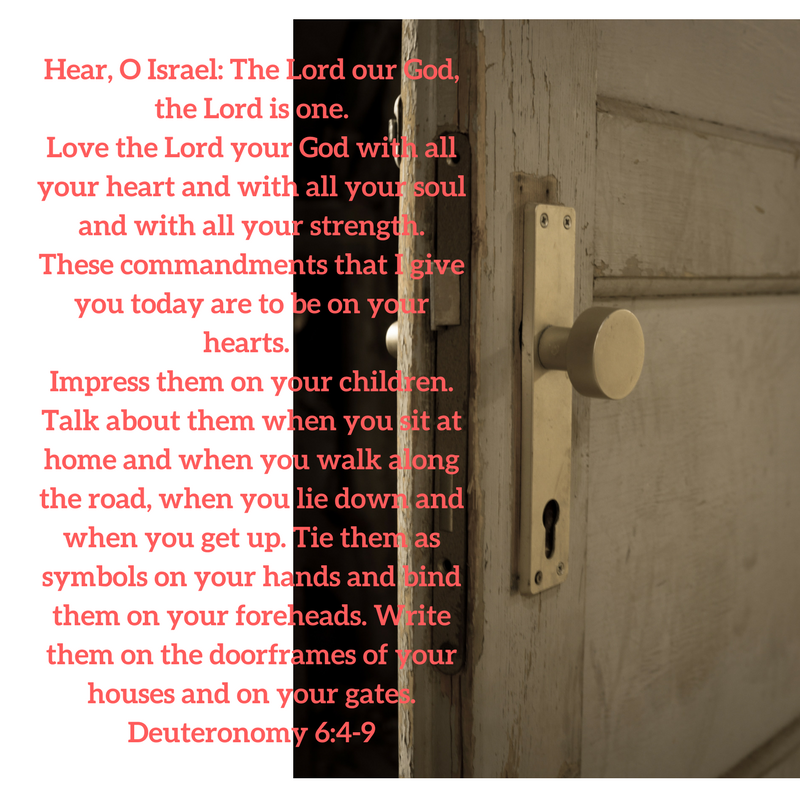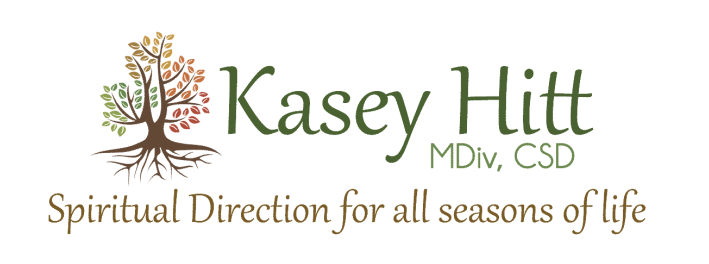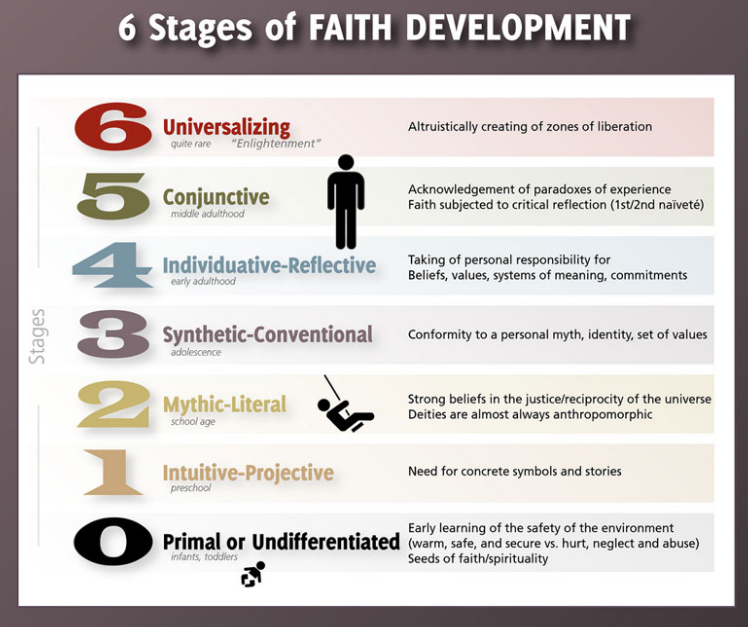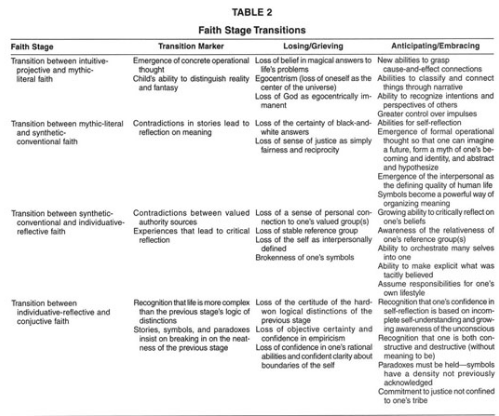|
Hospitality
is the heart of Spiritual Direction A holy welcome saying, "Your soul is safe here." Free of judgement or agenda Suspending disbelief and storylines Creating space at the Table within for the wild, unpredictable Spirit Who certainly knows you better than I know you, and even better than you know yourself Who has always been and yet is always being sent To companion, comfort, heal, grow, and guide Helping you notice and taste goodness and truth in, around, and through you That you may learn to trust (maybe be surprised by!) your experience and the invitations of this Inner Voice of Love Who brings good fruit from the Wisdom Tree to the celebration of your Authentic Presence who knows what you need in this moment at the Table of Divine Nourishment.  Spiritual practices, like meditation and even church-going, can become spiritual bypass—ways of bypassing reality both outside and inside of us, dissociating from wounds within and without, ignoring the healing work that needs to be done in our inner and outer world. But spiritual practices can also be vehicles for transformation of both ourselves and our world. How?—by giving us new ways of seeing and being (which is the whole point of authentic spiritual practice). Let’s take a look at a few practices... Conscious Breathing: With as little as 10 slow, complete exhales and 10 full, relaxed inhales, we can calm the fight, flight, freeze survival impulse, allowing us to move from a reactive, closed off, defensive place to a receptive, open, deeper place. Centering Prayer: Through daily practice of 20 minutes of silent surrendering to God’s presence & action, we let go of our ego-drivenness and receive inner healing of compulsions and soul wounds. Not only does this bring personal freedom but it releases us from projecting our compulsions and wounds on others and passing them down to our children. Lectio Divina: Spiritual reading allows a word or phrase in a small portion of inspired text, whether sacred Scriptures like the Psalms or a poem, to speak to us. Rather than bringing what we already know or studying it, we allow the text to study us! As we bring our story, our lives, to it, we humbly listen for the wisdom and guidance being offered (which may be encouragement to see a counselor or write a letter to your senator!). Awareness Examen: Looking over our lives at the end of the day through the eyes of God helps us become aware of God’s life-giving presence and action (and the times throughout the day when we were unaware or resistant). The patterns of what is life-giving and life-draining help us discern who we are and what we are to offer this world. Silent Retreats: Extended time in silence and solitude creates space for our souls to rest and play which opens us to better hear the “still, small voice” which may be drowned out by the external noise of daily life or the internal noise of comparing ourselves to others. There are so many practices I could list here but the point isn’t the practice itself, it’s the “fruit.” Seated meditation may not fit you. You may desire some kind of moving meditation, like dance or qigong. Or you may prefer to spend time in nature or doing art. What practices have you found that cultivate love in you? What helps you have eyes to see and tend to the suffering both inside yourself and in others? Which ways of wisdom help you discern what is yours to offer this world (not out of compulsion but compassion)? A Spiritual Director can companion you on this journey of discovery of spiritual practices. But remember, it’s not necessarily the practices, it’s the humans who are transformed by these practices, that this world needs. What do spiritual practices like Centering Prayer offer a hurting world?—YOU!  Kasey and Annie in 2005 on vacation in Oregon Kasey and Annie in 2005 on vacation in Oregon I did not think I could do spiritual direction without my dog. She had been there from the beginning with her soulful eyes. She knew when to sit on a directee's lap, cuddle up beside them, or stay on my lap looking and listening. Her presence and gaze was the topic of conversation during many spiritual direction appointments. "It's like she's looking into my soul!" one young seminary student exclaimed. "In my vision, it was your dog that helped me have courage and assured me that I would not fall into darkness; how did she know to come sit with me at just that moment?!" a stay-at-home mom said with wonder-filled eyes. When asked to sum up what God had been offering him through spiritual direction, the aerospace engineer who cultivated a Zen garden in his backyard, replied, "The image is Annie, your dog. God has shown me grace through her." My miniature dachshund and I were partners. So when faced with sitting with people by myself, I did not think I had what it took. I was convinced it would not be as powerful of an experience for people. I relayed my fears to Father Carl Arico while on a Contemplative Outreach retreat in Sewanee, Tennessee. And while he believed I would be just fine, he suggested I set out a photo so that she would continue to be with me during the time of spiritual direction. It was then that I understood how God had companioned me through her during my beginning stages of being a spiritual director. She had modeled ways of listening and discernment, showing me it was not about what I knew, or about any kind of performance, but how I was with people that mattered most. Through her, God had been present to me. Countless times since then I have met with people whose best (& many times only) experience of the unconditional love of God has come through their dogs. Because of my own experience of how a dog can be a vessel of the Divine, I pay special attention to the relationship people have with their pets. And I integrate this relationship into prayers and spiritual practices, because the love they give counts. So maybe you are one of the people who need to hear that the way your dog loves you is God loving you through your dog. If that's the case, a spiritual practice for you is spending more time with your dog! I know a woman who has three precious dogs, I call them her visible Trinity. Being with them is so life-giving, filling her with such love, that she is able to be in the world and interact with people differently than before the time with them. Her dogs usher her into the mind of Christ and is that not what the best spiritual practices do for us?  Years ago, I read George MacDonald’s 1879 novel, The Baronet's Song (also titled, Wee Sir Gibbie). It’s about a young, mute, Scottish boy raised, then orphaned, by an abusive, alcoholic father. Gibbie finally ends up being adopted by an elderly couple and the old woman, Janet, becomes a mentor to the pure-in-heart boy. Seeing the face of Jesus in him, she teaches him everything she has ever loved about Jesus (which was very different than the hellfire and brimstone being preached in the churches!). Writes MacDonald, "So teaching him only that which she loved, not that which she had been taught, Janet read to Gibbie of Jesus and talked to him of Jesus, until at length his whole soul was filled with the Man, of His doings, of His words, of His thoughts, of His life. Almost before he knew, he was trying to fashion his life after the Master. Janet had no inclination to trouble her own head, or Gibbie's heart, with what men call the plan of salvation. It was enough to her to find that he followed her Master." Prayers of salvation and baptism (so he would not go to hell) were of no concern to Janet. She simply shared with him the life of the One who taught her how to walk in the way that leads to Life. I finished that novel and began reading more novels of George MacDonald's, The Curate's Awakening, The Musician's Quest, The Lady's Confession, The Poet's Homecoming, The Fisherman's Lady, The Marquis' Secret and more...amazed at the way his characters experienced and trusted in (& their lives reflected) an unrelentingly kind and tender God. Each time I would say to myself, "I want to trust God and speak of Jesus in that way." And slowly like Janet had done for Gibbie, George MacDonald did for me. Sometimes what we have been taught or picked up on in regard to salvation does not lead to the freedom or life of which Jesus spoke. It does not cause the heart to long to know and trust that God more. Says Meister Eckhart in Daniel Ladinsky's Love Poems from God, "How long will grown men and women in this world When you think of God, does the image that comes to your mind make you sad or fearful?
Or is it an image your heart dearly loves? If you prayed the prayer of salvation or were baptized, what was that like for you? What motivated you to do so? A welcome into and communal acknowledgement of following Jesus on the path of Life? Or wanting to be saved from hell and eternal punishment? If both rituals initiated you into living a life of Love, I am so very glad for you (my baptism was very meaningful to me). But if either were fear-motivated, perhaps it is time to recognize any grasp it still has on you, especially if fear-based theology continues hissing in your ear. Stories around salvation and baptism reverberate throughout one's life, for better or for worse. And fear-based theology can offer nothing (no matter how convincing!) but fear-based lenses to view one's self and the world. Maybe it's time for a trip to the library to spend time with George MacDonald's characters. Maybe it's time to come to Spiritual Direction and experience the God of Wee Sir Gibbie. Maybe it's time to pick up your crayon and draw a different image in your coloring book.  Honestly, I don’t. As a Spiritual Director, I’m looking and listening for spiritual “fruit” in your life rather than whether or not you’ve checked off or formalized any religious rituals or beliefs. And while both can be meaningful, they are not requirements for relating to (& being loved by) the Sacred Presence. In other words, your spiritual life happens with or without them. While they can be meaningful, they can also be areas of spiritual wounding. Let me give examples from my own life because saying a “prayer of salvation” does not appeal to me for three reasons:
Maybe you have had a wounding experience around this as well. If so, I am sorry. There is nothing “saving” or “sacred” in manipulating people into believing what you want them to believe (even if well-meaning, it is still manipulation!). Plus, it’s simply not creative. Jesus did not have one way of being with people and inviting them into freedom and wholeness. Methods and "laws" often by-pass the sacredness of relationship by making people projects that need saving. Years ago, a woman once bemoaned in spiritual direction how she had tried to “save” her brother but feared he was not “saved” before he died. I asked her tell me more about their relationship. She told me about his disdain for God and the ways she had still loved him through the ups and downs of his life. It was clear that she had loved him well and he knew it. Her kindness in caring for him, especially while he was dying, was evident. I looked at her and said, “Wow, I am amazed by your care for your brother! You do know that the way you loved him means more to God (& your brother) than any of the beliefs you shared or any prayer he could’ve prayed. Plus he had good reason not to pray it and he did not need to, you were the face of God for him and he loved you.” I want to explore this a bit more next week. But if you desire Spiritual Direction, know that you do not have anything to prove and I certainly do not want to manipulate or burden you. Instead, I will listen to the ways you have been spiritually wounded. And together, we will look for the fruit already present in your life, already waiting to be tasted and tended to. It has nothing to do with whether or not you've said the right prayer or done the right ritual.  Photo by Darius Krause from Pexels Photo by Darius Krause from Pexels Honestly, I really don't. As a Spiritual Director, I'm listening and looking for life. For some this looks like a daily time set aside for reading Scripture and praying with words (whether silently, written, or spoken). This can be a very grounding and growing time. Or it can be a burdensome box on the spiritual checklist marked by guilt-if-I-don't-do-it. Even worse, it can be a time to grow the ego (rather than the mind of Christ). Reading the Bible and memorizing Scriptures are not a guarantee that one is on the path of and toward Life. Some things may have the appearance of life but underneath we find superstition or pride in disguise. However Spirit is in the process of utterly transforming our hearts (which impacts the lenses through which we see the world, including Scripture), that is what I am looking and listening for when I sit with a person in Spiritual Direction. Let me give an example: One person felt guilty because they did not want to do a one-year-Bible study initiated by their peers. I affirmed their resistance which was telling them the truth--should they say "yes" out of obligation, they would only grow resentment, not life, in their relationship with God and others. As I continued to listen, it became clear that this person would step out of their particular compulsions and into a deeper place the more they spent time in Nature (God's first revelation) and working with wood. Nature and Beauty were of utmost importance in growing in Love and Life. Their year would be better spent outside and in their workshop. There is no one-size-fits-all contrary to what you may have heard as a child, young adult, or a newbie to tending to the spiritual life. Having regular, uninterrupted time on the couch with a cat or dog or sharing a peaceful and delicious meal with one's partner, both are life-giving, love-growing practices. Others may find that silent meditation or reflecting on a poem expands their soul. Working with a dream from the night before, puzzling over a vision, wrestling with a spiritual question, painting, gardening, playing with children...the possibilities for spiritual practice and experience are endless because God is endless. It also does not have to be either-or when it comes to spiritual practice...either I read the Bible or I spend time in Nature. You might read the Bible in Nature. Spending time in Nature may give you new eyes with which to see the Bible when you do read it next (or you might discuss different ways to read Sacred Scripture with your Spiritual Director). So how do you know if your "daily quiet time" or spiritual practice is life-giving and growing? Reflect on the practice after you've engaged it for a length of time, at least a month. Any given day can feel like a slog and the fruit of the practice may show up outside of the time itself! For instance, after time in Nature, you may be calmer, less reactive, and more patient with others. Here are some questions to discover the fruit your practice is bearing (or not):
If you come for Spiritual Direction, I'm not going to give you Bible verses to memorize or critique your spiritual life. I'm going to listen for life within your life so that you may walk in the way that leads to Life (which is what the Bible encourages us to do!).  Becoming yourself is. I knew a brilliant young woman who needed to leave professional ministry to become herself. Her life was on track to eventually earn the title of "Reverend" in a mainstream denomination along with its retirement benefits. The problem was that this denomination was neither a fit nor was the position of senior pastor. After a long season together in spiritual direction, it became clear that while she had given it a valiant effort, she was living a story that was someone else's, not hers. When I was in college, there were para-church ministries who planted the idea in students' minds that if you really loved Jesus you would let go of your secular job pursuits and come on staff with them after college. As an adult, I watch how some believe leaving a "secular" job to go into professional ministry proves how much one loves and is devoted to God and/or the Church. And it's lauded by many, especially when a big pay-cut is involved. So many gifted scientists, lawyers, business men & women, machinists, musicians, and others have left their "secular" callings because they thought loving Jesus and the Church meant to do so. And it is true, sometimes Jesus does call us to leave one job for another, as he did his ragtag group of fishermen and tax collectors turned disciples. Although notice if he or Paul called the folks who financially supported them to leave their jobs! The problem lies in labeling jobs "sacred" or "secular," elevating one over the other, and allowing that to become our primary lens for discernment. Guess what happens? People end up in full-time ministry jobs that are an ill-fit (for them and for those around them). Ever had a pastor who you could tell had a different calling? I once worked for a senior pastor who was a very gifted naturalist. I learned so much about reptiles and plants from him and watched how his face lit up when he talked about creation that every time I listened to him preach or sat in staff meeting, I wished he'd followed his God-given giftings instead! Remember 16th century Protestant Reformer, Martin Luther? Well after the word "vocation" had been institutionalized to mean full-time church work, he broke it out of the box again by reminding people that since all are called to the "priesthood of believers," all jobs are ministry! Loving Jesus doesn't mean you must leave your job and become a professional missionary or monk. You can be both right where you are! Read what Luther wrote in The Babylonian Captivity of the Church: "...the works of monks and priests, however holy and arduous they may be, do not differ one whit in the sight of God from the works of the rustic laborer in the field or the woman going about her household tasks...all are measured before God by faith alone." ...the works of monks and priests, however holy and arduous they may be, do not differ one whit in the sight of God from the works of the rustic laborer in the field or the woman going about her household tasks...all are measured before God by faith alone. -Martin Luther, 16th century Ever witness someone operating out of their giftings? It's as natural and stunning as a sunrise. One year my daughter hated math and the next year she loved it. The difference? She had a teacher gifted in math! Said Saint Basil of Caesarea, "God the Creator has arranged things so that we need each other." Isn't that the truth?! We need creative and compassionate electricians, inventors, counselors, accountants, nurses, yoga instructors, athletes, social workers, childcare providers...their presence changes the world, no matter how big or small.
So how can you begin to identify your vocation? Author Frederick Buechner writes, "The place God calls you to is the place where your deep gladness and the world's deep hunger meet." Am I ever glad that math teacher didn't go into full-time ministry! Instead she's living out the presence of Christ in the classroom, where so many, like my daughter, need her. By the way, that young woman I mentioned at the beginning is now in a vocation she loves which has nothing to do with professional ministry. It's a better fit for her (and for this world)! Glory be to God.  Can you recall a moment of synchronicity? "Meaningful coincidences" or moments connected by meaning and means not of your own making? When it happens (or at least when I notice), I cannot help but sense that Something is seeing me and something is being communicated. A word, image, or subject matter is repeatedly offered in a variety of ways (unexpected conversations, dreams, nature, ordinary events, extraordinary events, etc.). When synchronicity occurs, I take it as an invitation from God to pay attention. In my own life, it's often a call to grow (consciously) or a signal that growth is occurring (unconsciously). I had a moment of synchronicity last week. On Tuesday, I mentioned Fowler's Stages of Faith Development in relation to listening to the Holy Spirit, so it was fresh on my mind a day later when I headed to Congregation Ohabai Sholom with a friend for a 4-week class on The Heart of Jewish Meditation & Spirituality taught by Rabbi Rami Shapiro. Although we had missed the first week, unbeknownst to me, the discussion for the second week was mystical Judaism's 5 Levels of Consciousness! These levels are based on the words of Deuteronomy 6:4-9 and walk one through the deepening levels of relationship with/to God...the exact subject material of my latest blog! Clearly I was to step further into the stages of spiritual growth! So I'm paying attention, perhaps you're beckoned to pay attention, too. Just as I briefly shared about Fowler's stages, I'll briefly go over the Levels of Consciousness as I understood them in class. The 5 (Ascending) Levels of Consciousness: 5. Yechida (Spirit) Singularity, pure Soul/God, no barriers between "I-Thou" 4. Chayah (Soul) "Spacious mind," connected to everyone/everything in the Universe, Truth is beyond ideology, more justice & humility expecting nothing in return, no self-seeking, Higher Self, non-dualism, "I and Thou" 3. Neshamah (Mind) "Narrow mind," ego, survival, intellectual comprehension, identity, spirituality reflects back ego/tribalism, "What's in it for me or my group?", dualism, "I-it" 2. Ruach (Heart) Emotions and "spirit" of person, personality 1. Nefesh (Body) Animal existence- breathing, eating, sleeping, walking around Just as each of Fowler's stages of faith development are necessary, so too, are the 5 levels of consciousness. While the level of Nefesh or body-consciousness is the lowest level, that does not mean it is to be denigrated. After all, we need a body! Rabbi Rami asks us to consider, "Which [level] is calling right now?" If it's the body level, please tend to the body! The point of the levels is to remind us that we're beckoned to grow beyond simple existence and emotions. At some point in time, we're also beckoned to grow beyond our own ego and tribe. In fact, authentic spiritual practice will always seek to move us from Neshamah to Chayah or from "narrow mind" to "spacious mind." Rabbi Rami describes narrow mind as "seeing the self as separate from and often in conflict with the world and God." And spacious mind he describes as "seeing the self and other as part of a greater wholeness we call God." In my Christian experience, a lot of Christian reading, teaching and preaching tends to keep people in the Neshamah level or the realm of ego and tribal identity. This can be seen in viewing Christianity as the one right religion (or even narrower, one denomination as the truest or most orthodox) and celebrating being on the "winning side." It's the belief that Christian music is the only music a Christian should listen to. It can also be seen in people's image of God, often a masculine Being resembling the Greek god, Zeus. Remember, such concrete, dualistic thinking whether described by Neshamah or Fowler's "Mythic-Literal or "Conventional-Synthetic," is a necessary stage or level, but it's not the ending point. Confused? Wondering what spiritual practices can help you shift from Neshamah to Chayah (or move from narrow mind to spacious mind)? Well, they will not look the same for everyone! This is why a spiritual director can be such a helpful companion on your journey. Plus our ego-minds are masters at using religious language to trap us in Neshamah when it's time for us to grow (we are not apt to see it on our own). This is why I have my own spiritual director! By the way, Rabbi Rami says there are no ways or practices to move from Chayah to Yechida, it is simply pure grace. I'm not surprised, Chayah gets us out of our own way, preparing the way for Yechida, the highest level of consciousness characterized by non-dualism and Union with the Divine. This should resonate with those who practice Centering Prayer, the silent prayer of consent which prepares one for the gift of contemplative prayer or resting in God. If/when one ever gets to taste Yechida, can you guess what the earmark is? Pure Love. Of God and neighbor. Sound familiar?
Next week: More Synchronicity to Share & The Shema (Deuteronomy 6:4) as a Breath Prayer  Listening to the voice of the Holy Spirit?! What does that even mean? And is it even necessary? Read Jesus' words with me in John 14 when he is preparing his disciples for his departure: "If you love me, you will keep my commandments. I will ask the Father, and he will send another Companion, who will be with you forever. This Companion is the Spirit of Truth, whom the world can't receive because it neither sees him nor recognizes him. You know him, because he lives with you and will be with you...I have spoken these things to you while I am with you. The Companion, the Holy Spirit, whom the Father will send in my name, will teach you everything and will remind you of everything I told you." John 14: 15-17, 25-26 (CEB translation). Wow, it's going to be a leap in faith development for the followers of Jesus! With their leader about to leave, what will they do?? They've been following him, literally and figuratively, on this path of life. Wherever he goes, they go, even tracking him down when left alone! The good news he tells them is that while they can't go where he is going, they're not going to be left alone, either. When he leaves, it's not time to abandon the path, it's time to grow in their faith journey. The Bible gives us a wonderful glimpse into the spiritual growth of individuals and faith communities, first Israel then the early church, beginning with their infancy. James Fowler gives us a good glimpse into the stages of faith development. Fowler was a theologian, a professor at Emory, and United Methodist pastor who described stages of faith development beginning with his first book in 1981, Stages of Faith: The Psychology of Human Development and the Quest for Meaning. See the charts below or watch this video to get an overview of each stage. Remember that although age ranges are mentioned, anyone can be at any stage at any age. In stage 3, Synthetic-Conventional, we see that following and conforming to the teachings of an authority figure, group, or institution is the earmark of a stage 3 person/group's faith and identity. This is not a bad thing, of course. Who or what we choose to follow can either be leading us down the path of life or death, blessings or curses, as the books of Deuteronomy and Proverbs remind us. Following a leader, doing what a leader tells you, and getting affirmation within the group is a healthy and necessary stage of faith development. However it is a stage, not the ending point. Too many people (and faith communities) stagnate at a particular level of development and never progress beyond stage 3. Knowing this, Jesus invites his disciples to venture where many choose not to go. In the context of the disciples' story, the One who they listened to and learned from is about to leave and, unbeknownst to them at the time, MUST leave if their faith is to grow. It's the only way the seismic shift from perceiving truth from outside themselves (in the person and words of Jesus Christ) to perceiving truth from inside themselves (through the voice of the Spirit within) will take place. Jesus cannot always do the thinking for them! It is their task to awaken to the reality of the Companion, Advocate, Counselor, who is with them and accessible wherever they go. They first got to know the ways and means of this Spirit in the presence and person of Jesus. Now in his absence, the presence of Jesus will be made known to them by this same Spirit dwelling in their innermost being, their truest self. They will learn that the very "mind of Christ" is accessible to them, willing to teach, remind, comfort and companion...if they are willing to stop, listen, remember and receive. There comes a time, whether it happens slowly or abruptly, when we are beckoned to leave what we know and grow. It can be confusing and intimidating. But you'll know it's time. When that time comes, remember... You are not alone. All you need to know for your next step is available to you. Let a spiritual director companion you as you learn to listen to the Companion within, growing in wisdom as you follow the way of Christ, walking the path of Love.
 "Three Chairs" often describes the dynamics of spiritual direction. One chair represents the person coming for spiritual direction, one stands for the spiritual director and the other chair is the presence of the true director, the Holy Spirit. "Three Chairs" often describes the dynamics of spiritual direction. One chair represents the person coming for spiritual direction, one stands for the spiritual director and the other chair is the presence of the true director, the Holy Spirit. 1. Spiritual direction is a New Age concept. It's not new at all! Even though it may be for some Protestants, it's a lot older than the New Age label that emerged in the 1970s & 1980s! John Cassian formalized the practice of spiritual direction used in monasteries in the 4th-5th century and based it on Biblical "spiritual directors" such as Eli & Samuel, Jesus & the Disciples, Ananias & Saul, Paul & Timothy/Titus. The early church continued the practice with John the Evangelist (apostle), Polycarp of Smyrna (2nd c. Bishop), Saint Benedict (late 5th/early 6th c.), Saint Patrick (5th c.), Saint Igantius in the 16th century and more. Unfortunately, spiritual direction was lost for Protestants during the 16th century's Protestant Reformation (as things often are in any kind of divorce). Years of suspicion and fear of anything Catholic combined with the tendency toward self-sufficiency kept Protestants from engaging spiritual direction. With the growing need for this kind of spiritual companionship, improved relations between Catholics and Protestants, and the admission that healthy spiritual practices were discarded in the divorce of the Reformation, recovery has begun in the past 40 years. Ancient practices like spiritual direction and Lectio Divina have emerged once more to be offered as a gift to the whole Church. Spiritual directors are found in all religions. There are even interfaith spiritual directors! What sets apart Christian spiritual directors is that our practice rests on over 2000 years of Christian discernment and 3500-3600 years of Jewish discernment. So the Bible and Jesus-followers beyond the Bible shape our listening, questions and discernment. 2. A spiritual director is a guru who has all the answers or a mind-reader. While spiritual directors may have gifts of discernment, wisdom, teaching and even prophecy, we neither have all the answers nor are we mind-readers. We come alongside others, bringing our gifts and presence to listen and discern the voice and action of the One who is the true Director, the Holy Spirit (symbolized by the third chair in the above photo). My friend and colleague, Scott Spradley, likes to say that we [spiritual directors] are "one of the two or three gathered to listen to the Spirit who is in our midst." Matthew 18:20 By the way, we, too, need spiritual direction. A healthy spiritual director meets regularly with a spiritual director! 3. Spiritual direction is the same thing as Christian counseling. Although there is some overlap, we make it very clear to those who come to direction that it is not counseling. We are specifically looking at a person's spiritual life and growth. While we look at God's presence and invitations in all of life, direction doesn't focus on specific relational issues or problem-solving. So it is quite normal that during spiritual direction we may discern the Holy Spirit's "tap on the shoulder" saying, “It's time now, you have everything you need to deal with this specific issue in counseling.” Spiritual directors are trained to know when to refer directees to therapy. 4. Becoming a spiritual director and coming to spiritual direction is easy. My supervisor says spiritual direction is "a sheer gift from God." However, while people are gifted for the work of spiritual direction, if a director hasn't at least gone through a two year process of certification from a reputable, accredited school (Seattle School, Perkins, Garrett, Shalem), I'd be a little wary. Besides being schooled in spiritual growth, formation, disciplines and practices, most of us have additional schooling in theology and psychology which broadens and deepens discernment. As to whether or not being a spiritual director or coming to spiritual direction is easy...helping people befriend silence and other ways of recognizing the still, small voice can be a challenge for the director and the directee! Being fully present to a person can often be hard work! And spiritual growth can be painful even as it leads to freedom & life. There are some sessions we've got to allow directees to leave with things being messy or not feeling very good! 5. Spiritual direction is only for clergy, creatives, contemplatives, or older adults. It's for everyone who desires companionship on their spiritual journey...I've met with church-goers, unchurched, those who've left the church, Southern Baptists, Catholics, Methodists, Nazarenes, AME, stay-at-home moms, professors of psychology, engineers, chemists, men and women, high school students, LGBTQ, pastors and para-church workers, and I've worked in conjunction with a therapist with those who have mental illness. People of all ages and from all walks of life may want to deepen their spiritual life and discernment, a spiritual director is a good companion along this journey. 6. There is one way of offering formal spiritual direction and that is seated across from one another in a quiet room. While I offer traditional spiritual direction as well as Skype spiritual direction, there are other directors who offer different formats. Scott Spradley offers spiritual direction in coffee shops and walking on a trail. Whitney Simpson combines spiritual direction with yoga for creating greater space to listen to the ways God is speaking in and through the body. 7. Spiritual direction is a fad. As the response to the first myth states, spiritual direction has been around for a long time! However, anything of value can be in danger of becoming a fad when it is cheapened. It may become faddish to a certain individual who comes out of curiosity and leaves when the work of the spiritual life gets too vulnerable. Or in rare instances, a spiritual director may have become certified because it was something to add to their "spiritual collection" and not because of giftedness or calling. While the way of offering spiritual direction (like Skype) may change, spiritual direction offers "wisdom for the long walk of faith" as Henri Nouwen put it. Fads are here today and gone tomorrow. |
AuthorKasey is a scarf, ball and club juggling spiritual director just outside of Nashville, TN. Play helps her Type-A, Enneagram 1 personality relax, creating space for poetry and other words to emerge. She also likes playing with theological ideas like perichoresis, and all the ways we're invited into this Triune dance. Archives
September 2023
Categories
All
|
By clicking “Sign up for E-News” I consent to the collection and secure storage of this data as described in the Privacy Policy. The information provided on this form will be used to provide me with updates and marketing. I understand that I may modify or delete my data at any time.



 RSS Feed
RSS Feed

